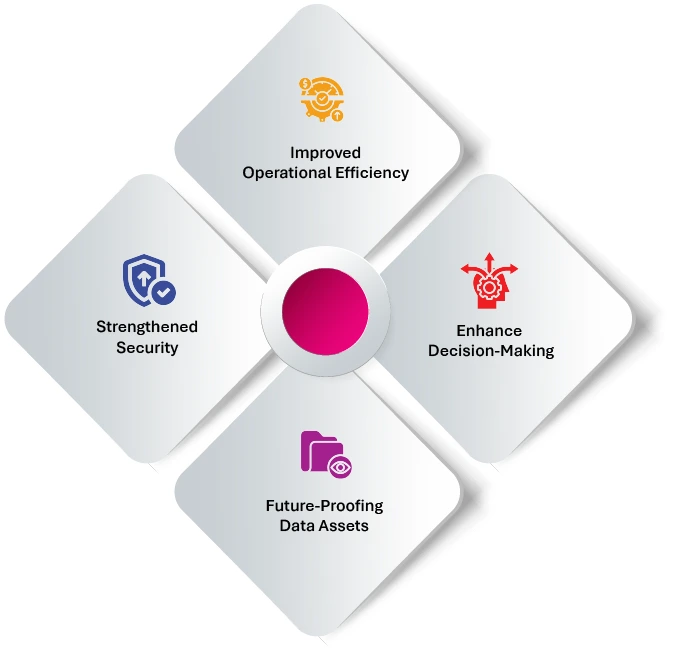In today’s data-centric world, organizations are inundated with vast volumes of structured and unstructured data. Estimates suggest that over 80% of enterprise data is unstructured, so managing this data effectively has become a cornerstone of operational success. Data governance frameworks provide a structured approach to handling these challenges, ensuring that data remains a strategic asset rather than a liability.
What is data governance?
Data Governance is the framework of policies, processes, and standards that ensures the proper management, quality, and security of an organization’s data. It involves defining roles, responsibilities, and procedures for handling data to ensure its accuracy, consistency, and accessibility while also complying with regulatory and legal requirements. Effective data governance enables organizations to maximize the value of their data, mitigate risks, and support informed decision-making across the enterprise.
Key drivers making data governance critical include:
- Rising Data Volumes: The global data sphere is projected to grow to 163 zettabytes by 2025. Without proper governance, managing this data deluge can lead to inefficiencies, inaccuracies, and missed opportunities.
- Regulatory Compliance: With laws like GDPR, CCPA, and the Indian DPDP Act, organizations face increasing scrutiny. Effective data governance helps avoid hefty fines—some reaching up to 4% of global annual revenue—and safeguards against reputational damage.
- AI and Advanced Analytics: As organizations increasingly leverage AI and machine learning, clean and well-governed data is essential for accurate model training and decision-making. Gartner predicts that 60% of AI projects will fail to meet expectations due to inadequate data governance frameworks.
The Strategic Benefits of Data Governance


Improved Operational Efficiency: By minimizing redundancies and streamlining processes, governance frameworks enhance overall efficiency.
Enhanced Decision-Making: High-quality, accessible data allows for more informed and timely decisions.
Future-Proofing Data Assets: Governance ensures that data remains usable and relevant as technologies and business needs evolve.
Strengthened Security: Robust governance minimizes vulnerabilities, reducing the likelihood of data breaches and associated costs.
Industry Insights and Trends
- About 60% of corporate leaders have prioritized Data Governance; it remains a focus for chief development officers (CDOs) and is ahead of AI by 80% for data platforms and security practitioners.
- Market Growth: The data governance market, valued at $3.28 billion in 2022, is expected to reach $7.42 billion by 2026, growing at a CAGR of 22.7%.
- Data Breach Costs: The average cost of a data breach reached $4.45 million in 2023, further emphasizing the need for stringent governance practices.
Getting Started with Data Dynamics:
- Learn about Unstructured Data Management
- Schedule a demo with our team
- Read the latest IDC Spotlight Paper – Rethinking Data Security: Improving Privacy and Compliance with a Shared Approach






